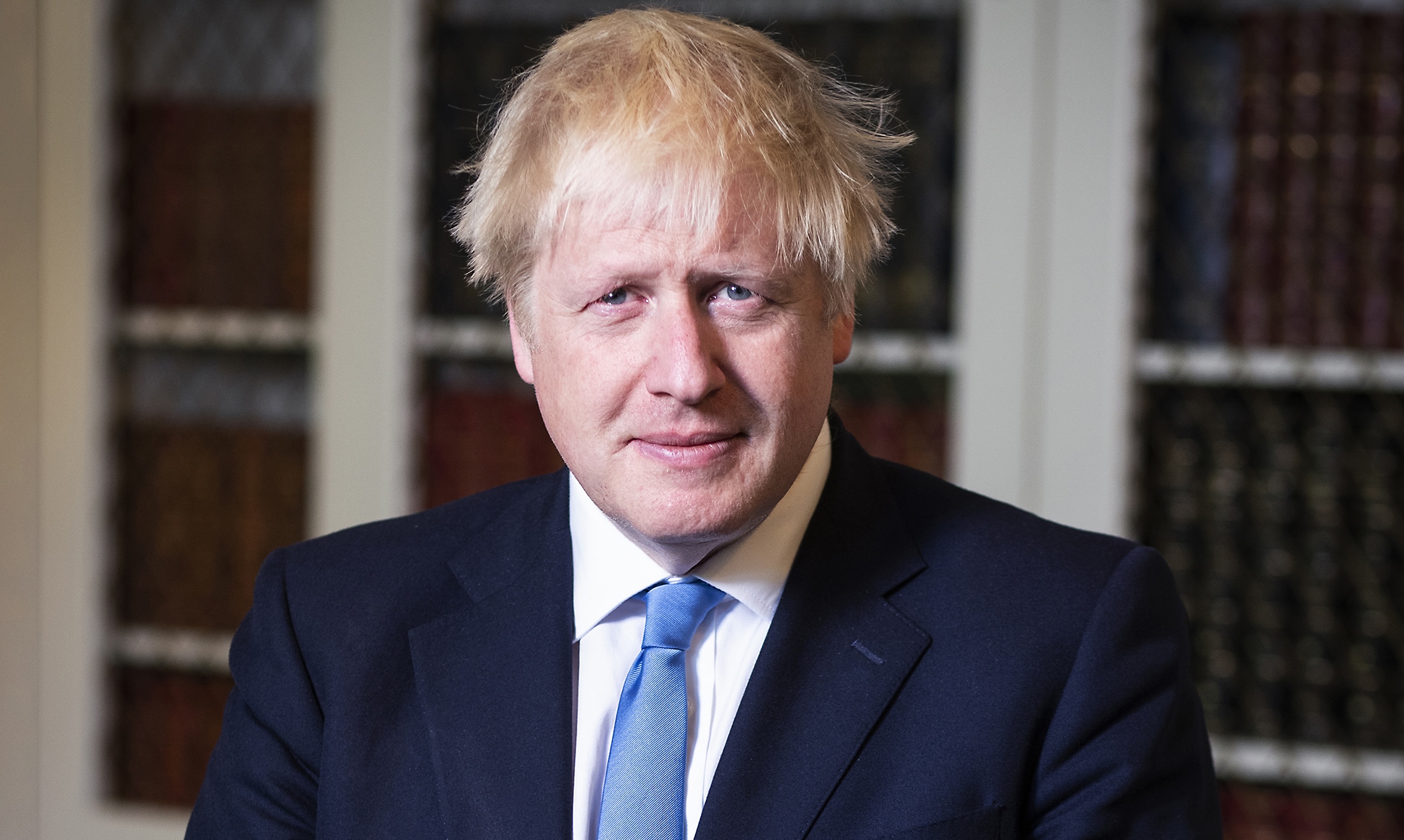Boris Johnson set to speak at Yale on U.S.-U.K. relations
The upcoming visit of the former British prime minister drew largely positive reactions from British Yalies across the political spectrum.

Ben Shread via Wikimedia Commons
Boris Johnson, a former Conservative British prime minister, will speak at Yale on Oct. 9 at an event organized by the Buckley Institute, a group which bills itself as “the only organization dedicated to promoting intellectual diversity and free speech at Yale.”
The talk will focus on the relationship between the United States and the United Kingdom, which it calls a “Special Alliance that Must Work Together to Save the West.” While advance registration is required for the event, a ticket will not guarantee a seat, according to a Buckley Instagram post about the event.
“Few world figures of recent memory have loomed as large over international politics as Mr. Johnson, and the global order has been forever shaped by his leadership,” William Barbee ’26, the president of the Buckley Institute’s student program, wrote in a statement to the News. “As we continue to grapple with questions surrounding populism, liberalism, and globalism in our current political moment, there is no one better qualified to lead us in a discussion of such topics than Mr. Johnson.”
Johnson, who was the prime minister of the United Kingdom from 2019 to 2022, is known for spearheading the final negotiations of Brexit, Britain’s exit from the European Union. While leading the United Kingdom during the COVID-19 pandemic, he breached several lockdown rules, causing a scandal that ultimately led to his resignation.
Barbee declined to comment further on the logistics of the event or the process of inviting Johnson to speak.
While most of the British Yalies reached by the News acknowledged Johnson’s “divisive” politics, many suggested his experience will provide important insight, regardless of his political beliefs.
Mohan Li ’28, who is from London, described Johnson’s talent in “narrative and persona” as valuable to the future event’s attendees.
“Despite most Americans seeing Boris Johnson as Trump with worse hair and a posher accent, I think BoJo’s greatest talent lies not in statesmanship but in storytelling,” Li wrote in an email to the News. “I anticipate Yale students getting plenty of laughs, eye rolls, but hopefully a few genuine insights about democracy’s current state.”
Li added that he’s particularly interested to hear Johnson’s insights into American democracy and President Donald Trump’s “America First” policies.
Sui Yu ’27, who lives in greater London, wrote in an email to the News that she is eager to hear Johnson’s perspective on the U.S.’s relationship with Russia, considering what she described as Johnson’s “strong anti-Russian stance.”
Marco Mascari ’29, who is from London, wrote in an email to the News that Johnson’s close personal relationship with Trump makes him an especially important figure today as Keir Starmer, the current prime minister, attempts to replicate the dynamic.
“As much as I am highly critical of the UK and Starmer’s closeness with President Trump, Johnson’s perspectives and attitudes towards UK-US relations are likely to be quite representative of Starmer’s current goal to curry favour with the President, and are therefore of potential interest to any students interested in British foreign policy,” Mascari wrote.
Andrew Luhnow ’29, who is from Kent, also wrote that one does not have to agree with Johnson’s politics to listen to his talk.
Though Luhnow has worked with the Liberal Democrats, the center to center-left party, in the U.K., he plans to attend Johnson’s talk to hear his insight on transatlantic relations, Luhnow wrote.
Johnson’s perspective as both a British politician and a conservative will expose many Yalies to a fresh viewpoint, he added.
According to Mascari, Johnson’s talk comes at a moment when the British government is attempting to foster closer ties to the U.S., although he’s unsure a close relationship will shield the U.K. from conflicts over issues like tariffs and Palestinian statehood.
“Johnson’s visit to the Buckley Institute, as with any act of political discourse, should be met with a baseline level of respect as well as a highly critical ear,” he added.
Before entering politics, Johnson worked as a journalist.







